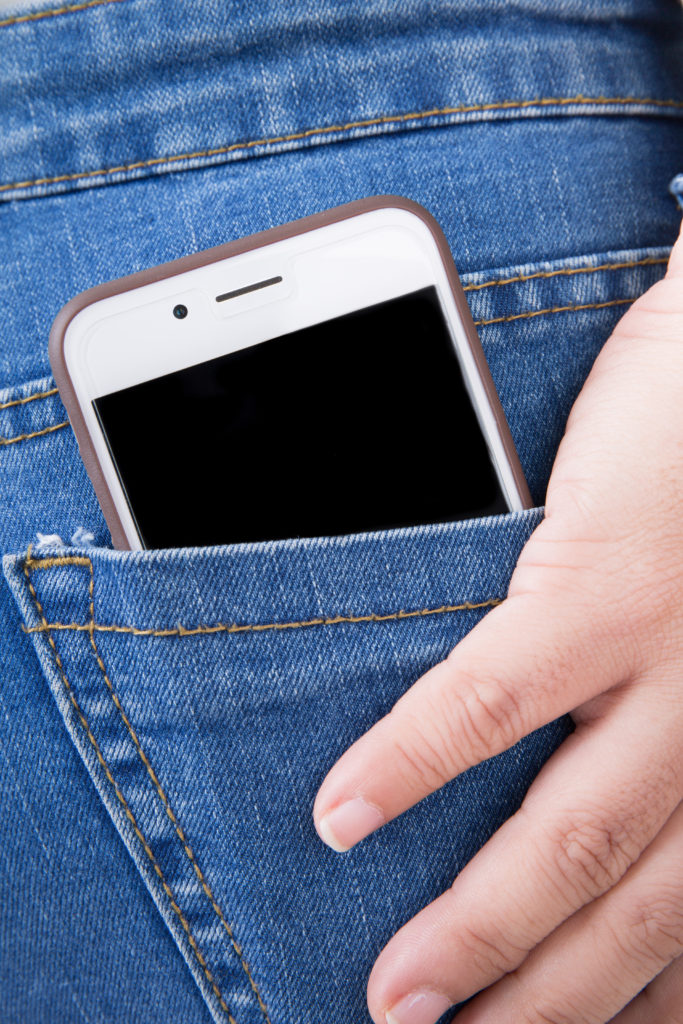Some time ago, I drove down the street to a Verizon Wireless outlet. It was square in the middle of one of those quintessentially Florida strip malls – tan, drab, and rundown. There were no other customers inside, just me and three bored salespeople.

“How can I help you?” One of them asked me after I spent a minute pretending to be interested in cell phones and 5G.
I replied, “I was wondering if I’d be able to trade in my iPhone for a flip phone and what the price would be.”
She started at me blankly and blinked. It was as if I had walked in and calmly asked her to install a sim card into my brain.
“Um, let me check on that.” She walked to the other end of the store to inquire with her manager, while I went back to pretending to look at phones.
She came back with bad news.
“I’m sorry, sir. If you’re in a contract, that’s not something you can do.” She stared at me and then chuckled. “Actually, you’re the first person we’ve ever had who wanted to trade down your phone.”
That moment had come after a few months of frustration on my part. After nearly 10 years of being glued to an iPhone, I was coming to hate it.
I never thought that I’d reach that point. Hating technology was a vibe for old people, for the uncool. I’m young and rad – in touch with the latest internet happenings. When there was a day-long joke on Twitter, I was there. When my group chat was going wild, I was always in the middle of things. I didn’t want to miss anything.
But then, I started to miss things.
I started to miss being bored. My brain was used to constant stimulation from the little metal brick in my pocket. I was conditioned to see it as a necessity to ward off the feeling of just sitting somewhere with my thoughts.
I missed being able to pay attention to things. Throughout middle school and high school, I was dogged by the constant temptation to be on my phone. An Algebra 2 lesson had no hope of pulling my attention away from Twitter. I used to fly through books when I was a kid; now, reading anything for more than 10 minutes without getting distracted is a miracle.
I also began to wonder how important being online really is and if it made me a happier or more rounded human being. Twitter has funny jokes, but I’m often on it seething in anger at posts from trolls. I can read the news online or spend an hour getting into a useless research rabbit hole that started with Lance Armstrong’s Wikipedia page. Being online so much made me feel angry or hopeless or anxious and would also derail real-world things I needed to get done.
So, I wanted to peace out. To quit cold turkey and unplug.
Unfortunately, as I was told by the Verizon Wireless saleswoman, that isn’t possible quite yet.
But since then, I’ve done a lot of reflecting on how often I’m on my phone and ways I can curb it. I’ve started to leave it charging in my bedroom on days when I need to do work, only checking intermittently. When I go to dinner or out with friends or to class, I leave it at home. I can get texts on my Mac, and the best way to stop the temptation of checking my phone constantly and becoming glued to it is not having my phone on me to begin with.
I’ve only been doing this process for a few days; I have to admit it’s been hard. But I have found that it’s made me significantly more productive, more aware, and better able to think ideas through without cutting my mental track short whenever I get a TikTok notification.
We’re still in the early days of smart technology, and I’m sure that there are many people like me who struggle with moderation. But there are tactics that everyone can use to ensure that they enjoy the conveniences of new technology without being burdened by it.


